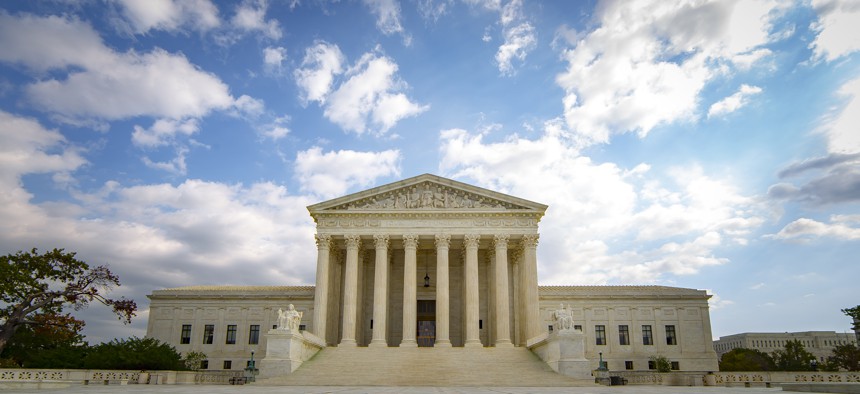College access nonprofits respond to SCOTUS’ affirmative action decision
Organizations serving students of color remain committed to advancing diversity in top schools, despite funding unknowns

The U.S. Supreme Court (Photo by Mike Kline (notkalvin) – Getty)
The U.S. Supreme Court’s ruling striking down the systematic consideration of race in the higher education admissions process has added a layer of complexity to the college admission process. For nonprofits working to diversify students in top colleges and universities, this means continuing to do the work, even though certain funding streams may be affected.
College access nonprofits, such as SEO, believe that this decision will ultimately impact the number of students from marginalized communities who will apply and be accepted into top universities.
“This ruling will very likely mean a dramatic decrease in the number of students from historically excluded racial and ethnic groups admitted to selective colleges. This impact will make it substantially more difficult for young people from these backgrounds to access the benefits of these institutions (including resources, networks, opportunities, and financial aid), setting back decades of progress toward leveling the playing field,” said SEO's president and CEO, William Goodloe.
Nonprofit public charities, such as the Kaplan Educational Foundation, have also expressed a similar notion, concerned with the amount of students of color who will be able to transfer into top colleges and universities.
“No doubt, the Supreme Court’s decision will deter many students of color who wish to transfer to top colleges and universities from applying,” said Kaplan Educational Foundation’s Executive Director Nolvia Delgado.
“If these institutions are serious about building diverse and inclusive campuses, they need to communicate clearly that students of color are welcome. That means thinking more broadly about how you recruit, and an important part of the solution should be community colleges, where they’ll find a deep well of untapped talent from underrepresented communities.”
Another college access nonprofit, PeerForward, believes that the decision means their work has become more important than ever.
“We will continue to strengthen the importance of the personal statement and sharing our story. Our process has not changed. And let’s be clear – inequities in student support for writing such statements are already vast. It is increasingly commonplace for parents with means to hire essay coaches for their children. Our work with essays has now taken on heightened importance, and we will step up volunteer recruitment to ensure our students get the guidance and support they deserve,” said Gary Linnen, CEO of PeerForward.
As nonprofits continue to express their fierce devotion to their mission of diversifying top colleges and universities, funding is not exactly a worry as of yet as nonprofits, such as Peer forward, believe receiving funding from the right places is essential.
“PeerForward enjoys the support of many funders who share our values,” said Linnen.
“There may be a shifting of some funds, but others will increase funding to help those underserved. Our partners stand with us in the commitment to providing the guidance and support low-income students needs to navigate a complex college admissions process. I do not believe that commitment will waver.”
In order for students of color to achieve success in the college admissions process, some nonprofits believe that colleges play an important role in ensuring they belong. This includes colleges performing active recruitment, improved advising, and according to Delgado, starting transfer pathways that start as early as high school through dual-enrollment programs.
While the landscape of funding for college access nonprofits still remains unclear, these nonprofits are still dedicated to their mission of providing services to students of color and ensuring their success in the college admissions process and beyond.
“SEO will fearlessly pursue our mission of ensuring those students and rising professionals have the education, skills, and mentoring necessary to meet existing standards for success,” said Goodloe.
“SEO will make adjustments as needed to continue designing and delivering programming that will close the academic and career opportunity gaps that exist for far too many young people in this country. This is what SEO has been doing for 60 years, and this is exactly what we will continue to do. We imagine that other nonprofits that serve historically underserved young people will recommit to their mission and make similar adjustments.”
